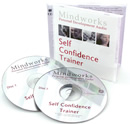 I came across an excellent post on communication, Stop Talking and Start Communicating – which is also a great title. It’s main point is that many people talk “at you, over you and around you – in your general direction” rather than with you.
I came across an excellent post on communication, Stop Talking and Start Communicating – which is also a great title. It’s main point is that many people talk “at you, over you and around you – in your general direction” rather than with you.
Some of my posts on communication have been slightly apologetic in suggesting we look at improving something we do automatically – such as breathing. But, as the post author Craig Harper points out:-
“Without doubt, communication is the single most important life skill, yet amazingly, the majority of us don’t consciously work at developing it. Better communication equals better relationships, and better relationships equal a better life. So why wouldn’t we work at it?”
Working at talking with someone, rather than at them, should be a priority for us all. It means being able to adapt what you want to say, and the language you are using, to the particular audience. But moreover it means taking interest in the other person, rather than concentrating on getting your point over.
When we lack confidence, the easiest habit is to get engrossed in thinking about we are going to say next. In a meeting, you compose or rehearse your next point rather than listening to the current speaker. Meeting new people, you focus on creating a good impression with what you are saying, rather than taking genuine interest in them and listening to what they have to say.
To make a friend, be a friend
I don’t know who wrote this, but I couldn’t agree more. Over the years I have met several people who have had great problems making, and keeping friends. Whenever they meet someone, they’ve tended to talk about themselves – often moaning and groaning about their problems. If you meet someone like that, you take the first chance to escape.
Craig suggests going further than showing interest, but actually caring about what the person you are trying to communicate with has to say:-
“Caring about what they think, feel, want, need, believe. If people sense that you are genuinely interested in what they have to say, you will create instant rapport and connection. You don’t need to ‘love’ or even agree with them, just respectfully consider their perspective.”
This is so important. In theory, its also so easy. Showing interest and caring about what someone is saying doesn’t cost anything. It doesn’t demand any particular physical attributes or abilities we don’t already have. And as a skill to learn, or as a habit to change, its simpler than many other things we have done in our lives. We just stop the main focus being on ourselves.
As an introvert, I’ll be the first to say that making a lot of noise and talking incessantly doesn’t make people listen to you. If you spend that time listening to others, when you do speak you are more likely to have something relevant to say.
I used to worry about getting myself heard in meetings, rehearsing a possible intervention rather than listening (as in the example above). But learning to listen and be genuinely interested keeps me in the “flow” of a meeting, and able to talk with authority when the time comes. It also helps me to keep awake sometimes!
Apart from building your confidence and improving your communication skills, if you take on board and start practicing this advice, it should be a more enjoyable experience. Life is very boring if the only person you care about is you.
photo by frielp on Flickr

David, thanks for the message, it’s really helpful!
My last post have similarity with your message, it’s about why you forget names when you get to know a person.
The reason that relates to me very much is how I often think of what to say next instead of really paying attention to what the other person is saying. Thinking of how to impress the person we’ve just got to know.
The tips in the article… be relax! Do one thing at a time, listen first, and think what you speak later, and you have the right statement there…
“If you spend that time listening to others, when you do speak you are more likely to have something relevant to say.”
My article Networking: Watch out why you forget names!
Cheers,
Robert
Robert @ reason4smile’s last blog post..Networking: Watch out why you forget names!
You and Robert wrote some good points on the communication skills. In my opinion, besides listening, asking a good question also is a good skill in communication. You only can show how concern you are by asking the right questions. By asking a question, you can understand someone better and also keep the conversation flowing.
I truly enjoyed this info & the comments, being a person who expresses herself better thru writing, art & dance than in spoken words.
As a healing artist, I’ve found one of the most helpful things with all that’s been said is to learn how to be grounded, being in the body (when we’re nervous many of us pop right out of our bodies, a form of disassociation in psychological terms).
There are so many modalities that can help with this from Rosen Method Bodywork (meditation in relationship–http://rosenmethod.org) in which you learn to listen to others and develop presence to Reiki to Crystalline Consciousness Technique. In fact, I consider those 3 the triumverate of healing one self and developing self-awareness. Of course, they’re relaxing too, so that really helps all of this. Thanks so much for your posts!
Melanie – thanks for the fascinating comment. I cannot say I fully understand or agree where you are coming from, but I welcome your thoughts. David.
David Rogers’s last blog post..Why haven’t you set goals?
Hi David,
First of all, I love the picture of the ducks very much. 🙂
Be a friend first is essential because we gotta sow before we reap and what you sow is what you reap.
Raymond Chua’s last blog post..Have A Good Laugh At These Funny Kids
Keep it up. A person is influenced by the words he receives, leading to the emotions then action goes to habit/behaviour. then further to character. Through this a person can alter negatives and vice versa.